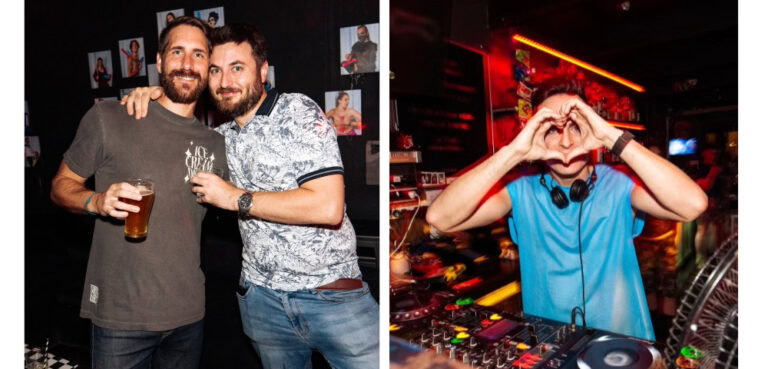
Rights discussion launched
Gay rights groups have welcomed the launch of a human rights consultation process as an opportunity to push for greater anti-discrimination laws.
Attorney-General Robert McClelland yesterday appointed a committee to discuss human rights issues and decide if Australia needs a human rights bill.
The panel will be led by the Jesuit priest and lawyer Father Frank Brennan, who said he was a fence-sitter in the charter debate. He will be joined by Mary Kostakidis, Indigenous lawyer Tammy Williams and former Australian Federal Police Commissioner Mick Palmer.
Several gay and lesbian rights groups, under the umbrella Australian Human Rights Group, welcomed yesterday’s appointments.
The Government seems to have selected people who remain to be convinced about the importance of a national charter of rights and while that might be disappointing to some, the case for a human rights charter is strong enough to convince them to recommend it and when they are convinced it will be even more compelling, Tasmanian GLBT Rights Group president Rodney Croome said, adding that the group would continue to push for greater anti-discrimination laws.
Australian Coalition for Equality spokesman Rod Swift said that 15 years of consultation had already shown that anti-discrimination legislation was needed.
Australian Marriage Equality also reminded people that a charter may assist in the fight for same-sex marriage.
McClelland said he welcomed challenges to the marriage policy at the Evatt Foundation lecture on Tuesday.
I get asked the question a lot, and it’s appropriate that you do so. I was given a brief by the Government to remove discrimination in the 58 laws, but not the Marriage Act, he said.
I invite you to make a submission to the consultation.
The committee will report to the Government by July 2009.
info: To make a submission go to www.humanrightsconsultation.gov.au










James, Mary is a great choice and hopefully one of the stronger rights advocates of the committee – she recently spoke at an Amnesty International event and came across as very intelligent and compassionate.
I’m sure she’s one of the best canditates to be reviewing the submissions the consultation receives.
Remember it’s the Australian public who get to give input into this process – instead of criticising the candidates chosen to conduct the consultation how about contributing to the process by making a submission?
Amnesty have a form on their website which you can easily change the text of to send in your own submission in 5-10 minutes.
http://www.amnesty.org.au/yourhumanrights/consultation/
Chillisauce100, if you do a google search for Frank Brennan you will see that he is no run of the mill Fr or lawyer. Fr Brennan has been outspoken on reconciliation, asylum seekers and East Timor. He is an advocate for social justice and human rights and, in my opinion, is a GREAT choice. Now if only they had also chosen someone like Michael Kirby as well…
James, Mary Kostakidis was a newreader for SBS and left in 2007. Mary holds a BA from the University of Sydney where she studied French, German, Italian, Modern Greek and Philosophy. After completing a Dip.Ed, she was awarded a post graduate scholarship by the University of Salonica in Greece. As an under graduate, she was awarded first prize for her speech “Second Generation Migrants – An Identity Crisis” by NSW University. She also founded the Sydney University Greek Society and was its first President. Before joining SBS Mary Kostakidis was an editor at the Ethnic Affairs Commission of NSW. Prior to that, she had worked as a tutor at Sydney University, a research officer for the departments of Health and Youth and Community Services, and a court interpreter. She has also worked for ABC Radio News and has hosted programs on ABC Radio. Mary Kostakidis’ other activities reflect a long standing interest in issues of social justice. She has been a member of the Drug and Alcohol Council, was a councillor on the Constitutional Centenary Foundation, and she was appointed by the Prime Minister to the Republic Advisory Committee. She has also served on the Order of Australia Honours Committee, and the Sydney Olympic Cultural Organising Committee (SOCOG) and was a member of the Breast Cancer Council Advisory Committee. In August 1997 Mary was appointed to the Advertising Standards Board. She is also a founding member of the James Joyce Foundation.
Copied from: http://www.celebrityspeakers.com.au/brspeaker_bio.asp?Speaker_Index_Text=146
The lack of public comment on the stated purpose of the committee;
“to decide if Australia needs a human rights bill”
and the backgrounds of the people who constitute the committee;
A catholic priest who states he has no opinion about the issue of whether or not there is a need for a human rights bill in Australia
A former police commissioner – police acting beyond their power and authority are a cause of many infringements of human rights
Two women – it is open to assume that the two men on the committee have been indoctrinated since birth to regard women as their inferiors and the professions those men have chosen would have reinforced their indoctrination
would indicate a total lack of confidence by the public in the Minister’s integrity and honesty in achieving the stated purpose of the committee and a total lack of confidence in the government’s integrity and honesty in achieving the stated purpose of the committee.
The fact that the article implies that representatives of the gay communities in Australia, “welcomed the launch of a human rights consultation process as an opportunity to push for greater anti-discrimination laws” indicates to the members of those communities that their representatives also lack integrity and honesty in that if those representatives welcome the method chosen by the government to determine if Australia needs a human rights bill then those representatives are just as dishonest as the people in the government who constructed the method of determining if Australia needs a human rights bill.
Mary Kostakidis? A newsreader from some obscure television station from the 1980s?